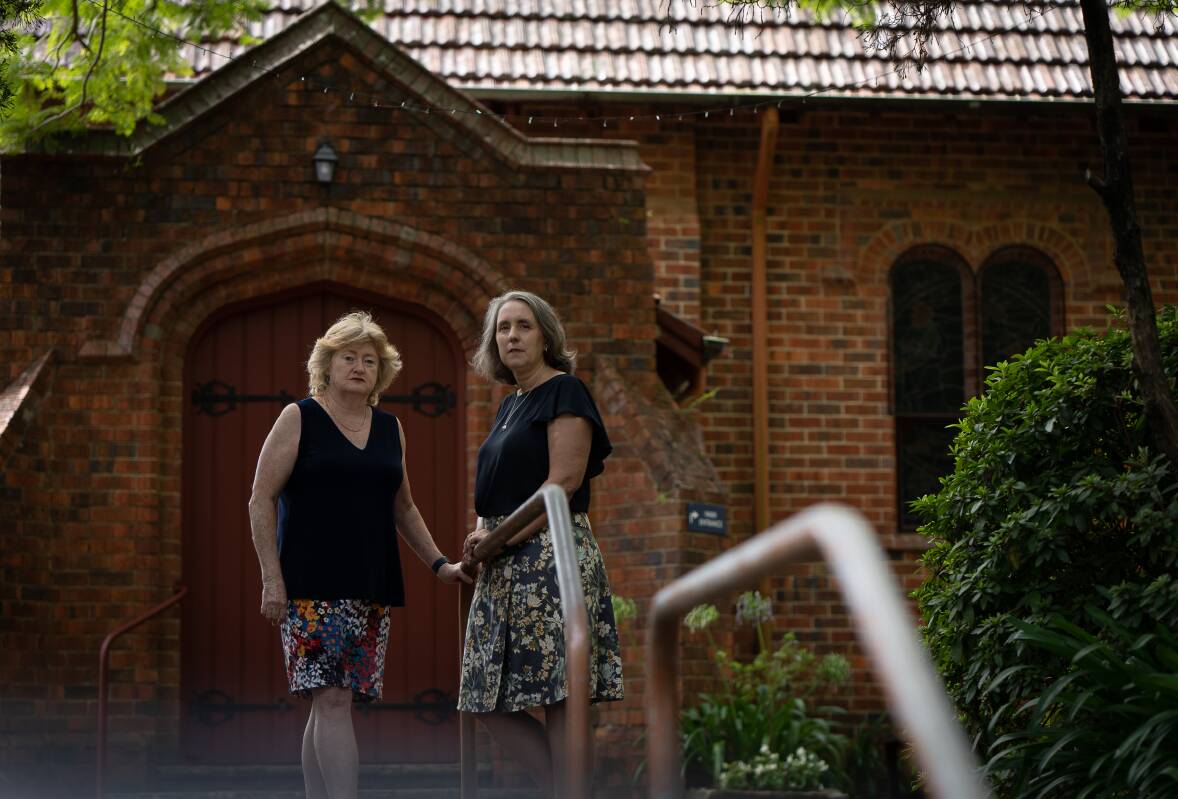
NEWCASTLE researchers have given a rare glimpse into the hurt and frustration of a crucial and silent arm of the Catholic church - its women.
In the most comprehensive survey undertaken, 17,000 Catholic women in 104 countries have spoken about their faith, identity, views on abuse, reproductive rights and equality.
The research was headed by University of Newcastle researchers Dr Tracy McEwan and Dr Kathleen McPhillips. Dr McEwan will present 20 key findings and 14 recommendations for Church reform at the Vatican this International Women's Day on Wednesday.
"We were surprised at the extent to which women shared, there was no limit to the amount of text they could put in the box, so to speak," Dr McEwan said.
"Some women wrote paragraphs and paragraphs of information that they wanted to share; some women disclosed experiences of abuse and harm in the Church.
"They were deeply moving and I think really important, these women were crying out to be heard."
The idea for the International Survey of Catholic Women started with an organisation called Catholic Women Speak, along with Professor Emeritus Tina Beattie from the UK, in response to Pope Francis' invitation for submissions to the 2021-2023 Synod of Bishops.
The synod is a process that looks at how the Church will address the major issues it faces.
It found that even when women struggle with the Catholic institution, almost 90 per cent feel their religious identity is important to them - continuing to practise their faith despite concerns, frustration and dissatisfaction.
The survey has captured the attention of senior Vatican officials, and Dr McEwan will present the findings in-person to female ambassadors to the Holy See this week.
Xaviere sister Nathalie Becquart has been briefed on the research, being the first woman ever to vote with the Vatican's synod of bishops.
The Hunter has its own dark and well-documented history of abuse in the Catholic church, and Dr McEwan said eight out of 10 Catholic women who were surveyed felt church leaders weren't doing enough to address the sexual abuse crisis.
"What was an even stronger response was there was 89 per cent of women who felt the Church wasn't doing enough to address abuses of power and spiritual harm," she said.
"That came through very strongly in the open responses where there was a call for greater accountability and transparency in Church processes, including processes about child sexual abuse and other forms of abuse in the Church."
The survey drew out powerful statements, as diverse and considered as the women across the globe who wrote them.
One responder from the Philippines said, "I am a religious sister but am strongly committed to working to change a patriarchal church. Frustration and disillusion are constant companions, but so is a deep belief in the power of Spirit to bring about change".
Another in the UK said, "I cling onto the Church by my fingernails, because of the Eucharist and in spite of many of its clergy".
Dr McPhillips said they heard from thousands of Catholic women calling for genuine change.
"Most women want reform, they want reform in church governance and the way the church is organised - they find it very hierarchical and patriarchal," she said.
"One of the things that the Royal Commission says in its response to the Catholic Church is that it has to look at the position of women, that it needs to respond to the low status of women in the church and it needs to respond to the need for increasing the leadership of women in the church."
Almost 80 per cent of the women surveyed believed women should be fully included at all levels of church leadership.
On that, a German responder pointed out that if every woman in every parish stopped cleaning, cooking, dusting, typing, directing, singing or working in the nursery for one week - every parish would have to close.
"Yet why do women have so little real power? Ie, financial, decision-making, leadership," she said.
While Pope Francis has made positive changes for women in the Church, Dr McEwan said she cannot see full gender equality in the Church in her lifetime.
"You've got this massive institution there and the possibility in that kind of clerical system, of driving change, is really tricky," she said.
"But he's certainly making positive moves towards listening to women.
"There is this strong idea in Catholic circles that women are either conservative or they're feminist liberals, but what this survey showed is that women are a lot more diverse and complex than that."
The researchers put together a series of recommendations, including greater access for women to meaningful leadership roles and the ordination of women; enacting guidelines to eliminate sexual, spiritual and physical violence and requirements around reporting perpetrators to authorities.
It also outlines how to address corruption and economic mismanagement with transparent decision-making practices; ensuring Catholic social teaching addresses poverty, climate change, homelessness, war and economic justice.
Given the Catholic Church is present in so many areas of Australian life, including social policy, we should be paying attention, Dr McPhillips said.
"We have been given the opportunity to voice our recommendations at the institution's most significant forum," she said.
"We just hope they're open to listening and implementing the change its members are so clearly crying out for."
To see more stories and read today's paper download the Newcastle Herald news app here.







